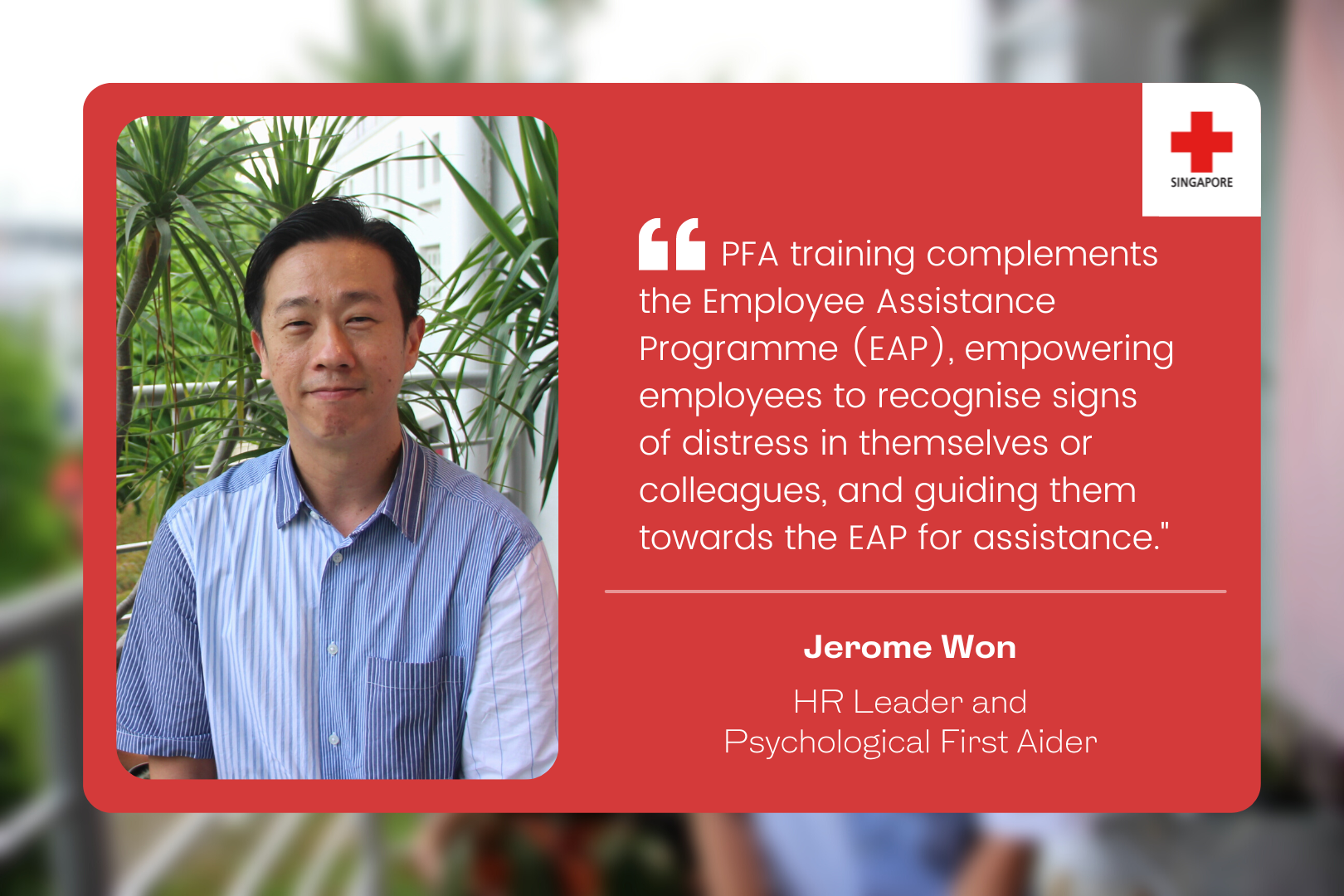
Human Resource (HR) professionals play a crucial role in promoting workplace mental wellness, and a progressive HR landscape is one that prioritises employee well-being. With over 20 years of experience, Jerome Won, the Head of Human Resources at the Working Capitol, is no stranger to the importance of workplace mental wellness. He highlights the positive outcomes of introducing Employee Assistance Programmes and Psychological First Aid training, and embracing technology in employee engagement initiatives.
Human Resource (HR) professionals play a pivotal role in integrating employee wellness into the workplace strategy. By collaborating with leaders, managers, and employees, HR practitioners can design policies, initiatives, and a supportive culture that cultivates a work environment emphasising mental health.
One such advocate for this transformative shift towards mental wellness in the workplace is Jerome Won, the Head of Human Resources at the Working Capitol. Jerome is a passionate champion of this cultural evolution, underlining the crucial role of mental wellness.
"In today’s dynamic profession landscape, promoting mental wellness in the workplace is crucial for demonstrating an organisation's commitment to diversity, equality, and inclusivity (DEI)," he asserts.
This perspective resonates strongly with many top executives, as an organisation’s robustness in DEI is strongly associated with workplace productivity, well-being and resilience. Nurturing an inclusive work environment can boost employee engagement and drive teamwork, collaboration and innovation, all of which enhance organisational performance.
“Beyond improving employee and organisational performance, prioritising DEI and workplace mental wellness aids in retaining and attracting top talent, providing the organisation’s brand and reputation with a significant competitive edge in the market,” Jerome adds.
Empowering Employee Mental Wellness
In rolling out DEI and workplace mental wellness initiatives, Jerome cited the introduction of an Employee Assistance Programme (EAP) and Psychological First Aid (PFA) training as transformative steps.
"The EAP provides a spectrum of confidential resources and support systems to aid employees in navigating mental health challenges. It offers them a secure space for seeking help, be it counselling, therapy, or other services. PFA training complements the EAP, empowering employees to recognise signs of distress in themselves or colleagues, and guiding them towards the EAP for assistance. PFA training also arms employees with skills and knowledge to provide immediate assistance to colleagues during crises or distressing events. These initiatives not only elevate overall employee well-being but also build a sense of trust and community within the organisation," Jerome explains.
Embracing Technology for Employee Wellness
Technology has evolved from being a mere conduit for information at the workplace to a platform for employee interaction, engagement and support. Jerome envisions a future HR landscape that embraces technology, centres on employee experience, and relies on data-driven decisions to drive DEI in the workplace.
"A progressive HR landscape should harness technology to deliver innovative solutions that support mental wellness. This includes digital platforms for mental health resources, wellness apps, and virtual support networks. Prioritising employee experience and shaping policies with employee well-being at the forefront necessitates a data-driven decision-making process. By leveraging data analytics, we can efficiently identify trends, pinpoint gaps and spotlight areas for improvement, thus enabling precise, tailored interventions that effectively boost employee wellness,” Jerome said.
Moreover, virtual support networks can help mitigate feelings of isolation, especially in remote working environments, by enabling employees to connect, communicate and share experiences. Hence, the strategic use of technology within employee engagement systems can significantly enhance the ability to support and improve mental wellness among employees. By delivering resources, facilitating connections and providing insights, technology empowers organisations to be more effective in their approach to mental health in the workplace.
By prioritising mental health and fostering a supportive culture, Jerome believes that organisations can cultivate a healthier, more engaged and productive workforce. As the world evolves, it is essential for HR professionals and organisations to adapt, positioning mental wellness as a strategic priority. By investing in their most valuable asset - their employees - organisations can build a positive and sustainable future where mental wellness is nurtured, valued, and celebrated.
By Dr Nguyen Kien Truc Giang, Volunteer
Copyedited by Adele Tan, Marketing Communications and Partnerships
|
Inspired? Learn Psychological First Aid (PFA) and advocate PFA to your family and friends. |

